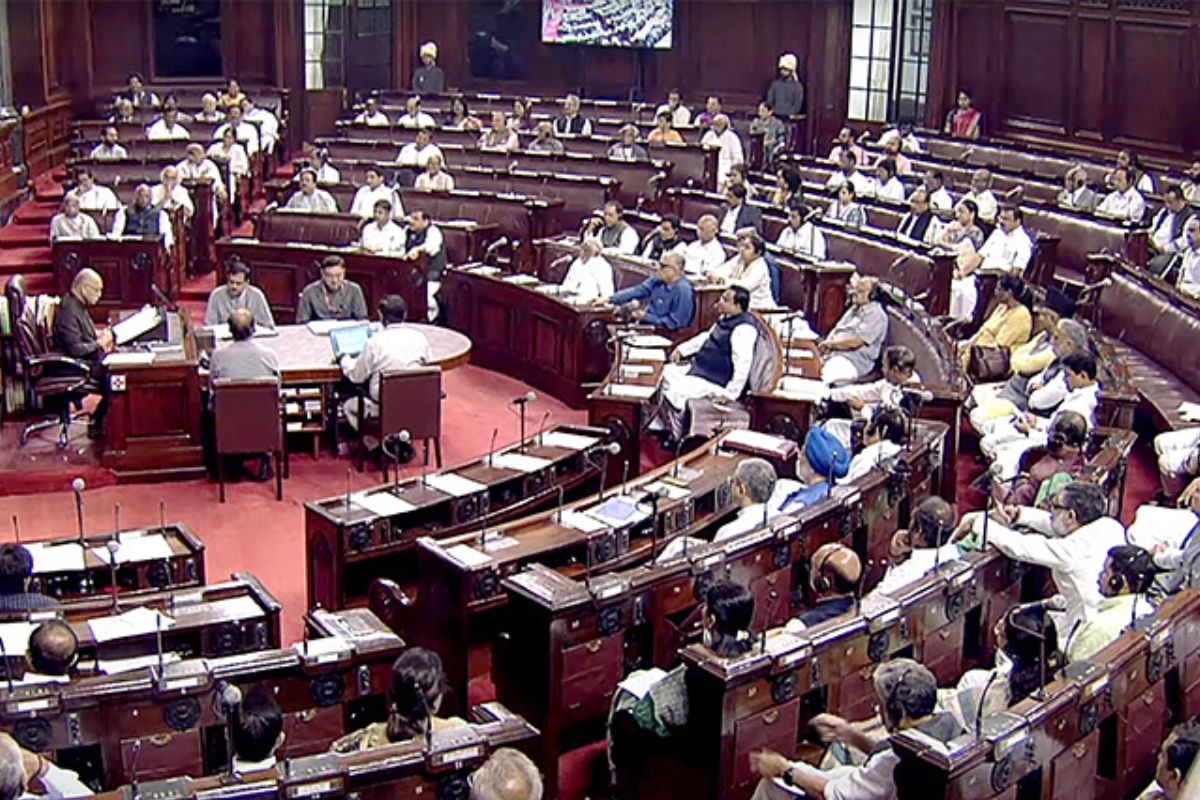The Parliamentary Standing Committee on Home Affairs on Monday presented to the Rajya Sabha its reports on The Bharatiya Nyaya Sanhita, 2023, The Bharatiya Nagarik Suraksha Sanhita, 2023 and The Bharatiya Sakshya Bill, 2023, the three Bills which seek to replace existing criminal laws of the country.
The reports were laid on the table of the House by Brij Lal, Chairman, Department-related Parliamentary Standing Committee on Home Affairs.
In its report on the Bharatiya Nyaya Sanhita, 2023, which is to replace the Indian Penal Code, the Committee has left the issue of continuance of death penalty to the Government.
The Committee said after considering the submissions regarding the death penalty it had “understood that the reason for a passionate argument against death penalty is that the judicial system can be fallible and to prevent an innocent person from being wrongly sentenced to death. In this regard, the Committee recommends that the matter may be left for the Government to consider.”
On Section 377, the Committee has recommended that it should be retained in the penal law. The Committee recalled “that in Navtej Singh Johar v. Union of India (2018) case, a five-judge bench of the Supreme Court unanimously held that section 377 of IPC is in violation of Articles 14, 15, 19, and 21 of the Constitution of India.”
“Provisions of section 377, however, remain applicable in cases of non-consensual carnal intercourse with adults, all acts of carnal intercourse with minors, and acts of bestiality. However, now, in the Bharatiya Nyaya Sanhita, 2023, no provision for non-consensual sexual offence against male, female, transgender and for bestiality has been made,” the report said.
“The Committee feels that to align with the objectives stated in the BNS’s Statement of Objects and Reasons, which inter-alia highlights the move towards gender-neutral offences, it is mandatory to reintroduce and retain the section 377 of the IPC. The Committee therefore recommends the Government to include section 377 of IPC, in the proposed law.”
On Section 497 the Committee said it should continue in gender-neutral form. The Committee said “the Supreme Court Bench headed by the then Chief Justice of India, in the Joseph Shine v. Union of India, 2018 case struck down section 497 of IPC as it violated Articles 14, 15, and 21 of the Constitution.”
“The Court held that this law was archaic, arbitrary and paternalistic and infringed upon a woman’s autonomy, dignity and privacy. The provisions under this section only penalised the married man, and reduced the married woman to be a property of her husband,” the Committee said.
In this regard, the Committee is of the view that the institution of marriage is considered sacred in Indian society and there is a need to safeguard its sanctity. For the sake of protecting the institution of marriage, this section should be retained in the Sanhita by making it gender neutral, the report said.
On the issue of imprisonment for life the Committee said the Committee notes that the BNS proposes to change the definition of imprisonment for life, defining it as imprisonment for the remainder of a person’s natural life.
The corresponding section 53 of the IPC provides only for the punishment of life imprisonment simpliciter though in certain offences of sexual nature, imprisonment for the remainder of a person’s natural life has been mentioned.
The Courts have interpreted imprisonment for life simpliciter to mean ‘whole life sentence’. The Committee recommended that suitable amendments may be made in consultation with the Ministry of Law and Justice to make clause 4(b) more comprehensive.
The committee’s report on The Bharatiya Nagarik Suraksha Sanhita, 2023 said the inclusion of a provision for attachment of property of a proclaimed offender, in Clause 86 of the Bill, as well as the provision for investigation in a place outside India, as provided in Clause 112(1) is an “appreciable step.”
“The Committee believes that these provisions will serve as a potent tool for deterring criminal activities, facilitating the recovery of ill-gotten gains, and will also encourage international cooperation, making it an invaluable aspect of the legal framework,” the report said.
The Committee believes that the use of handcuffs, as outlined in Clause 43(3), is appropriately restricted to select heinous crimes, which is necessary for preventing the escape of individuals accused of serious offences and ensuring the safety of police officers and staff during arrests.
However, the Committee is of the view that ‘economic offences’ should not be included in this category. This is because the term ‘economic offences’ encompasses a wide range of offences, ranging from petty to serious, and therefore, it may not be suitable for blanket application of handcuffing in all cases falling under this category. The Committee, therefore, recommends that Clause 43(3) may be suitably amended to delete the words ‘economic offences’ from the clause.
In its report on the Bharatiya Sakshya Bill, the Committee said The Committee is of the opinion that safeguarding the authenticity and integrity of electronic and digital records acquired during the course of investigation is crucial due to the fact that such evidences are prone to tampering.












